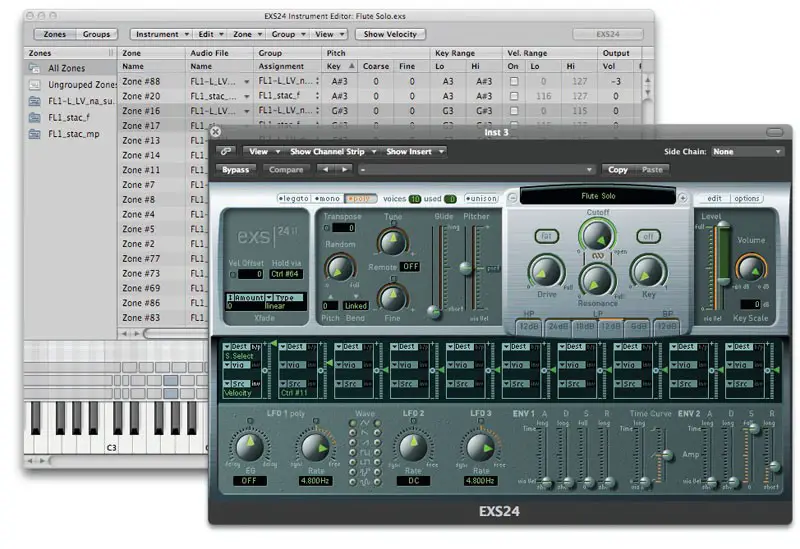 Equipping Your Home Voiceover Studio
Equipping Your Home Voiceover Studio
To make a living, voice over talents used to have to physically go to gigs recorded in commercial production facilities. Now, gigs can come to them-in home studios and through the Internet. But for many voice over talents, newbie and old pro alike, outfitting a home studio is technically baffling. So, how do you make that spare bedroom or corner of your studio apartment (no pun intended) into a functional voice over facility, with decent acoustics and the appropriate equipment? Let’s take a look at the basics involved in setting up a home voiceover studio.
Selecting your studio space
A studio of any size or recording purpose starts with the space in which it will be located. Isolation from outside sounds is important. If you live in a studio or one-bedroom apartment, then try to locate your “studio” in a corner as far from the door to the hallway and away from windows. Also, a closet can work well as a recording booth. Set up your recording equipment just outside the closet and your microphone inside the closet.
If you live in a two-plus bedroom unit or a single-family home and can dedicate an entire room to your studio, then you’ll have more options available for controlling the acoustics of the space. You’ll want to make sure the room doesn’t sound too “echoey” or “hollow.” Treating these problems can be as simple as putting some overstuffed furniture in the room, along with a rug and some drapes over the windows. Have a lot of old clothes sitting in an attic or basement? You can use them to create a recording “booth” around your mic. Fill three or four rolling clothes racks with clothes and then position them on the sides and back of your mic position.
Of course, you can use professional acoustic materials to control sound reflections. You’ll find an excellent primer on acoustical treatment-in plain English-at Auralex. Check out these acoustical treatment production companies, too: HSF Acoustics; Silent Source.com; Vocalbooth.com; Whisper Room.
Selecting your equipment
Once you have your studio space selected, you’ll need to properly equip it in order to deliver pro quality voiceovers to clients. With the latest in digital recording technology and reasonably priced pro microphones, you could spend as little as $1000 for a very basic, yet serviceable, home voiceover studio. That’s assuming you have a decent computer sound card and speakers. The list is quite short: $200-$250 for a microphone. $40 for a mic pop filter to prevent “popping” your Ps, Bs, and Ts. $45 for a mic stand. $200-$250 for a USB or Firewire digital recording interface. $65 for shareware recording software. $45 for headphones. $40 for cables. $100 for sundries. Bare bones, but it will work.
Plug your microphone cable into the digital recording interface, which is a little box that amplifies and processes the signal from the mic. Plug the interface into your computer’s sound card. Plug your headphones into the interface. Load the recording/editing software. A couple of adjustments to volume in and out and you’re ready to record. Voice the copy. Clean it up with an edit or two. Then convert it the voiceover sound file to an .mp3 file, attach it to an email, and send it off to the client via the Internet. To learn more about the equipment listed above, search the web or visit online pro audio dealers. A few good ones are: Full Compass; Sweetwater; B&H Pro audio; Boynton Pro audio; BSW.
This simple studio set up is serviceable, but it has its limits. If a client wants to direct you via the phone, then you’ll have to either hold the phone to your ear while you record, or get a hands-free headset. You could also buy a gizmo call a phone hybrid that allows you to speak through your mic down the phone line to your client as you listen to the client’s direction through your headphones.
Learning more
As with any investment, you’ll need to research the equipment you’ll need for your studio, and how to install and use it. See if you can locate a voice talent in your area that may let you visit his or her studio. Visit Mix Magazine or EQ Magazine and check their archives for articles on home studios. Local production houses may be willing to make suggestions, but, remember, by setting up your own studio, you’re indicating to clients that they can cut out the production house by working directly with you. That may not sit well with some production house owners, because the home voiceover explosion has had a detrimental impact on many commercial recording facilities.
That’s a basic home voiceover studio in a nutshell. If you can operate a home stereo and have experience in front of a computer screen, then you can put together and operate a home voiceover studio. With a little practice recording and editing, and some promotion of your home studio, you can quickly recover the cost of your studio and add to begin to add to your bottom line. Happy voicing!
© Peter Drew, 2005
Peter Drew, a freelance voice-over talent and copywriter/producer with decades of experience, is heard on radio and television stations, corporate presentations, web sites, and messages-on-hold across America and countries around the world. To send an email regarding this article, please visit Peter Drew Voiceovers at http://www.peterdrewvo.com.




